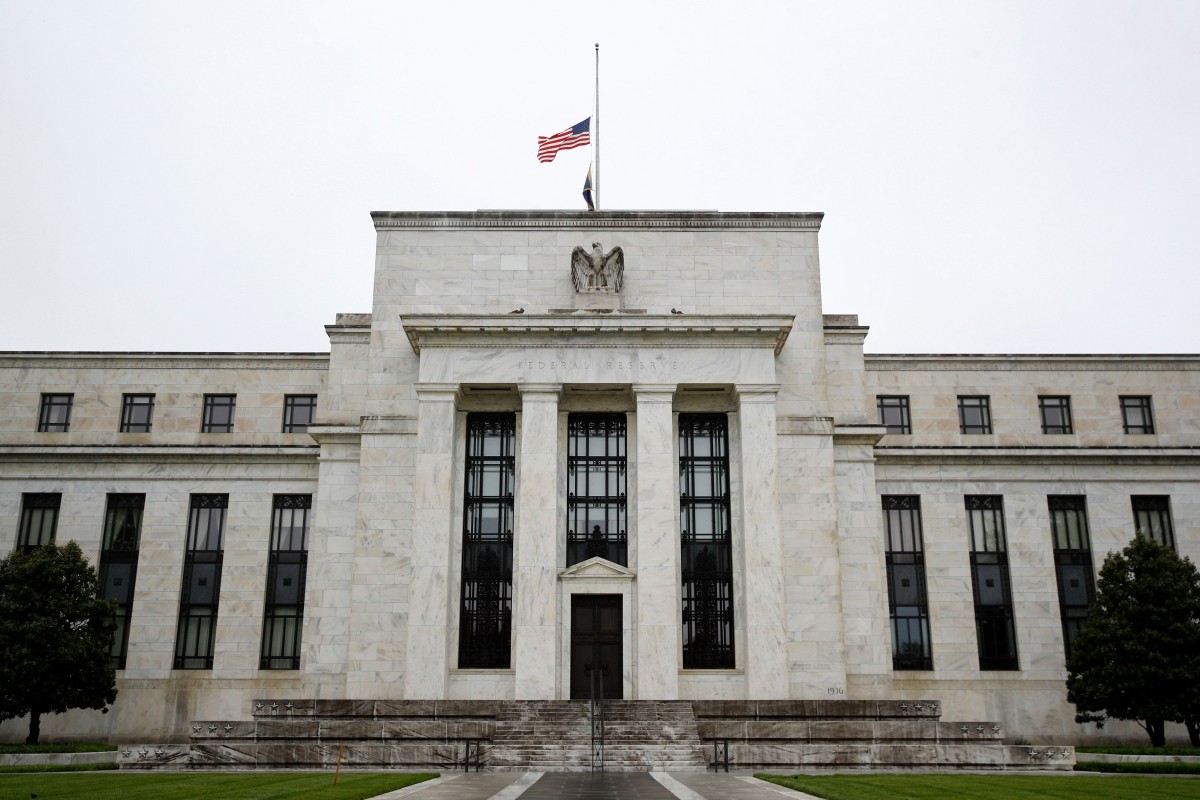2024 Election Puts Federal Reserve’s Future in the Spotlight
05.11.2024 15:00 2 min. read Kosta Gushterov
With the 2024 U.S. presidential election drawing closer, the Federal Reserve and its chairman, Jerome Powell, are facing significant potential changes.
The incoming president will have the power to appoint several new members to the Fed, including a successor for Powell, whose term concludes in May 2026. Kamala Harris has signaled a steady approach, but Donald Trump’s return could disrupt the Fed’s stability more than before.
During his previous term, Trump frequently clashed with Powell and even advocated for drastic steps like negative interest rates. A second term might see him take an even more hands-on approach, raising concerns about the Fed’s independence. According to Mark Spindle, CIO of Potomac River Capital, Trump’s influence could be profound if he secures office, with his advisors likely intervening directly in Fed matters.
The Federal Open Market Committee (FOMC) meets this week, possibly to decide on a 0.25% rate cut. However, political dynamics may shape these decisions more than usual. Trump’s previous critiques of the Fed, coupled with his occasional calls to replace Powell or influence rate policy, leave future directions uncertain. Advisors in Trump’s circle have even suggested options like tightening Fed oversight or downgrading key members.
Among Trump’s team, there is ongoing debate about how much control the presidency should wield over the Fed. His running mate, J.D. Vance, has expressed support for political involvement in monetary policy, while Trump has firmly opposed a third term for Powell, with potential replacements like Kevin Warsh or Kevin Hassett on his radar. Harris, on the other hand, has committed to respecting the Fed’s autonomy, offering a contrasting approach that reassures markets. A Harris presidency would likely either reappoint a moderate such as Powell or consider progressives like Lael Brainard.
As for Powell, his future could hinge on navigating current economic challenges, after which he may step down. Ultimately, the election’s outcome will shape U.S. monetary policy, with implications for inflation management and economic stability.
-
1
Robert Kiyosaki Warns of Deepening Financial Crisis, Urges Shift to Bitcoin and Precious Metals
03.06.2025 17:00 1 min. read -
2
Trump Reignites Trade War, Accuses China of Breaking Deal
30.05.2025 18:00 1 min. read -
3
Dollar Dominance Fades: Asia Turns to Local Currencies and BRICS Bloc
09.06.2025 14:00 2 min. read -
4
Jamie Dimon Warns U.S. Risks Losing Dollar Dominance Without Swift Reform
02.06.2025 8:00 1 min. read -
5
Elon Musk Says Congress Is Bankrupting America
04.06.2025 14:00 2 min. read
Billionaire Slams Meme Stock Hype and Sounds Alarm on U.S. Fiscal Health
Ray Dalio, the billionaire investor behind Bridgewater Associates, has taken aim at the growing obsession with meme stocks, warning that investors are falling for trends while ignoring the fundamentals.
Will Japan’s Central Bank Spark a Crypto Rally?
The Bank of Japan (BOJ)’s upcoming monetary policy meeting, set for June 16–17, could be the next major catalyst for global risk assets, including stocks and cryptocurrencies like Bitcoin.
Economist Who Called 1987 Crash Warns Markets Face Growing Risk
Mark Skousen, the economist who foresaw the 1987 market collapse, believes the current financial environment is entering a precarious phase.
Dollar Dominance Fades: Asia Turns to Local Currencies and BRICS Bloc
Across Asia, the U.S. dollar is rapidly losing ground as countries intensify efforts to reduce reliance on the greenback.
-
1
Robert Kiyosaki Warns of Deepening Financial Crisis, Urges Shift to Bitcoin and Precious Metals
03.06.2025 17:00 1 min. read -
2
Trump Reignites Trade War, Accuses China of Breaking Deal
30.05.2025 18:00 1 min. read -
3
Dollar Dominance Fades: Asia Turns to Local Currencies and BRICS Bloc
09.06.2025 14:00 2 min. read -
4
Jamie Dimon Warns U.S. Risks Losing Dollar Dominance Without Swift Reform
02.06.2025 8:00 1 min. read -
5
Elon Musk Says Congress Is Bankrupting America
04.06.2025 14:00 2 min. read


